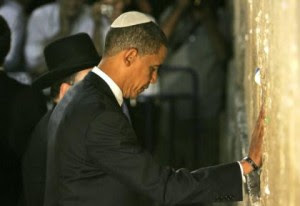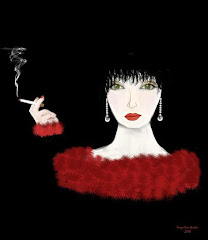For Baby Boomers, our parents, and some folks younger than we, Ed McMahon was our bedtime TV teddy bear, the easy-going and importantly innocuous human wallpaper on Johnny Carson’s desktop of celebrity. He was a sort of maître d’, straightman, fall-guy and mirror for Carson, who, his predecessors notwithstanding, truly defined the tone and format of late night television.
Before Leno and Letterman downsized sidekick duties, dividing them between their band leaders and announcers, there was Ed, the “second banana,” the constant on the far end of the couch who laughed loudest, but quietly made each guest still feel special as they shifted downward to make room for the next star in the hot seat next to Johnny. Yes, Ed did commercials live with dogs who upstaged or shamed him; yes, he went on to hawk that silly Publisher’s Clearing House sweepstakes that gave brief, cheap, hope to millions of everybodies who dreamed of problem-solving fortunes; and finally, he became an elderly, almost-forgotten, but nonetheless cautionary tale about the consequences of squandered wealth. He died broke and shriveled, and it was a sad moment for those of us who remembered the comfort of his hearty laugh and perpetual presence, even on Johnny’s nights off.
Farrah Fawcett became famous for the oft-imitated backward flip of her starlet mane, her broad expanse of teeth that were whiter than anything that really exists in nature, and the curse of being a beautiful, curvaceous blonde. Naturally, what she really wanted was to be taken seriously as an actress. She was the Betty Grable Pin-Up Girl of her time, a role she accepted but never relished. She was also famous for her relationships, first her marriage to the now-hardly-remembered Lee Majors (aka The Six Million Dollar Man), which made her Farrah Fawcett-Majors for a while, then her decades-long relationship with Ryan O’Neal, who was with her when she died and had announced just days before that they would marry as soon as she was better.
Fawcett, the Bombshell of the 70s, was the antithesis of everything the women’s movement of that era stood for, and the epitome of everything that little girls who still played with Barbie dolls wanted to be when they grew up. She finally got to show her true stuff in the 1983 Off-Broadway play Extremities, about a fighting-mad rape victim who gives her attacker as bad as she got, and won a Best Actress Golden Globe for the 1986 film version. And she struck a powerful blow on behalf of battered women (and won an Emmy) for her performance in the 1984 TV movie The Burning Bed. But she died too sick and too soon to create the seriously-regarded career she longed for.
And Michael Jackson – poor abused, confused, brilliant, sweet, demented, super-superstar Michael Jackson. When I think of the 1980s, the first images that come to mind are Michael Jackson and shoulder pads; they both defined the decade. I always liked his music, although I was never a wild fan. But I enjoyed him, I appreciated his energy and distinctiveness, and I liked that for black people especially, he was a true icon who transcended race and crossed over with more clout than Harry Belafonte, Nat King Cole, Sammy Davis Jr., Jimi Hendrix, Ray Charles, and Lionel Richie combined: their own true Elvis, the King of Pop. To anyone who loves rock`n’roll, he created a sound and style both powerful and unique.
He was equally famous as a generous, discreet humanitarian and, unfortunately, equally infamous as a childlike child predator – charges never proven, but which colored his reputation as darkly as he himself tried to lighten his skin through countless plastic surgeries and chemical treatments. I was pleased to see in a recent photo with announcement of his imminent comeback, that he was looking pretty good – in his own peculiar way (love him or not, there's no denying the eccentricities of his appearance). I'm sorry that we're not going to get to see and hear what Michael Jackson, older, long in exile with time to have revived and reinvented himself, would have presented to us. It's a double loss.
Like many a genius – and I think he deserves to be called one – his demons became stronger than his talents. From hereon in, when I think of Michael Jackson, I’ll be reminded of Judy Garland: both of them exploited child stars who were rendered unable to cope with adulthood, stardom, real life, or themselves; both loved by millions and who yet [apparently] felt supremely unloved and, ironically, unlovable; both dead way before their time.
Celebrities – by which I mean show biz folk, not writers or scientists or politicians or even the renowned leaders of major social movements – become the touchstones of our lives, whether we realize it or not. It isn’t that we all adore them, but like it or not, we tell social time by their existence – and when they go, time stands still for a moment, leaving us disoriented and displaced. And when time moves on again, it’s not the same, something is off kilter in the ticking away of seconds, and we ourselves not only grow older but grow differently (see Dividing Lines).
Thank you, Ed, Farrah, and most especially Michael. You wanted to touch people’s lives. You came to matter in our hearts.



